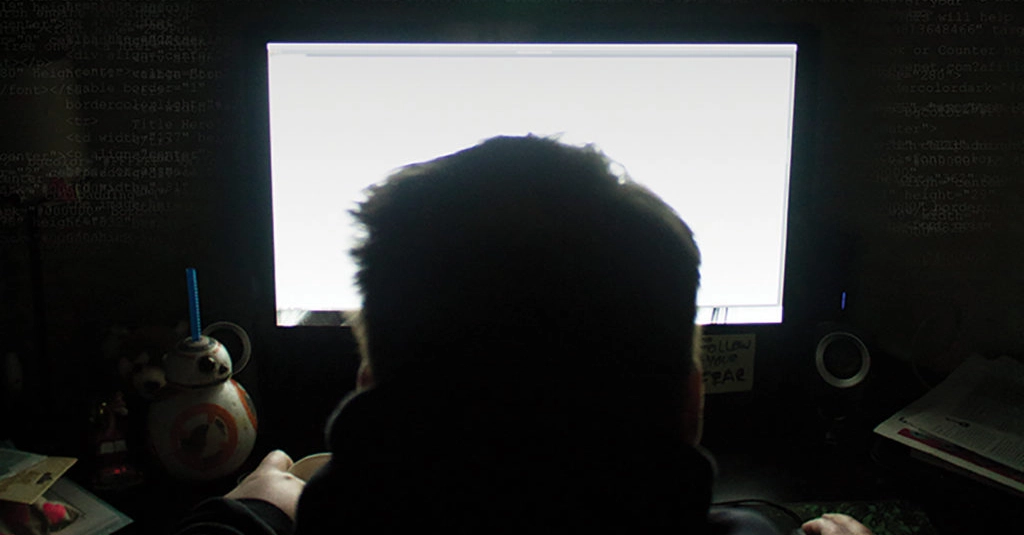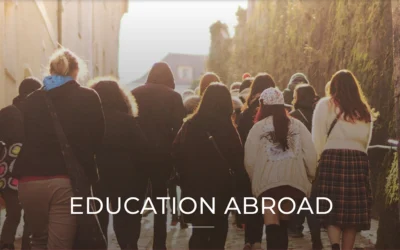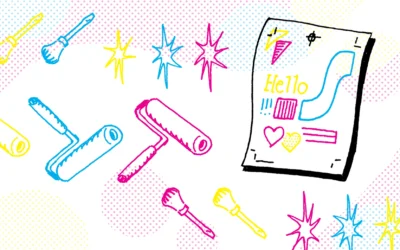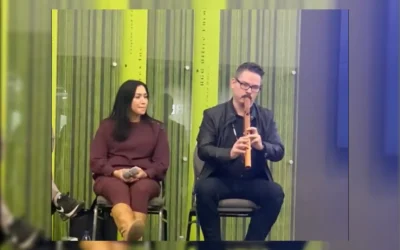<TITLE>
<HEAD>
<HTML>
I’m sorry, what was that?
What you see above is code: the language of the future, or, more accurately, the language of the now.
Coding, however, is unlike any other dialect. In short, it’s writing things that make the internet work.
“Coding underlies everything that we use in a digital format on a day-to-day basis,” says Dana DiTomaso, chapter co-lead of Ladies Learning Code Edmonton, an organization geared toward teaching a wide demographic of people how to code.
“The apps that are on your phone, the websites that you browse, your email – some coder touched it at some point to make it happen,” she says.
With the internet being such an integral part of our world, the importance of digital literacy is more important than ever, and the ability to write basic code provides the foundation for expanding this literacy.
A rudimentary understanding of how the internet works is clearly important — so much so that a comparison is commonly made between the ability to code to the now-fundamental skill of keyboarding: in 50 years, you’re going to have to be able to do it if you want a job.
While that might be a slightly exaggerated prediction, the ability to code is still a skill that is undeniably valuable in the current time period, and it’s growing more relevant as we continue to move deeper into the digital age and many job markets are moving to the internet.
Looking at the world through the eyes of a coder encourages seeing problems in a new light, thus promoting smarter, faster problem-solving. This method of thinking could start as early as elementary school.
So you should learn how to code — but aren’t there programs that can just do everything for you?
“It’s like knowing how your car works. Some people are happy to drive it from A to B, and some people want to know how to change a tire and other people want to be able to change their oil and other people want to be able to tear down the car and build it back up again,” says DiTomaso. “If you want your engagement with your car to be to get you from point A to point B, that’s fine, but wouldn’t it be nice to be able to change your tire, too?”
Much like how people aren’t hardwired to know how to build a car, developing the ability to code comes with a significant learning curve.
Learning code starts with what could be compared to learning the letters and numbers of another language. HTML and CSS cover the basics of coding, while programming languages like JavaScript and Python are more advanced. The jargon might be intimidating, but learning to code is similar to learning to do most things; it’s a near-constant process of adding to the basic building blocks of the topic (computer programming, in this case).
The accessibility of technology education has improved significantly in recent years, with the development of organizations that have the mission of turning technology consumers into technology creators.
Many beginners start by attending coding workshops like those provided by Ladies Learning Code, making coding far more accessible to the general public than it was a decade ago.
More specifically, coding has been made more accessible to a diverse range of people, as the digital landscape is currently characterized by a predominantly male workforce.
“A lot of the apps that are out there are approaching the problems that they’re solving from a very middle-class-white-man perspective,” says DiTomaso. [pullquote]“I think diversity is important in digital because it results in better solutions to problems.”[/pullquote]
She highlights the absence of a menstrual cycle tracker on Apple’s Health app as a prime example of an instance in which a more diverse workforce would have been beneficial.
By opening the field to people of all ages, genders, and ethnicities, the potential for innovative thinking and problem-solving for a variety of demographics grows exponentially.
Of course, computer programming isn’t a universal interest, but DiTomaso believes that everybody can benefit from learning a little code, as intimidating as it may be for some people.
As the ubiquity of coding continues to expand, the need for a variety of voices in the digital world expands with it, and will continue to do so until digital is dead.
</TITLE>
</HEAD>
</HTML>
Photo illustration by Madison Kerr





0 Comments